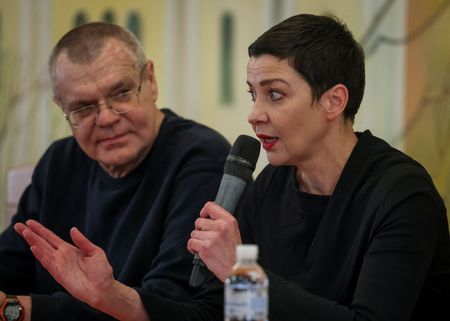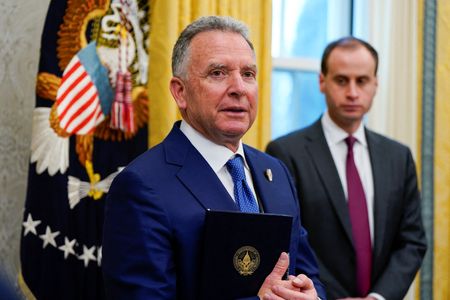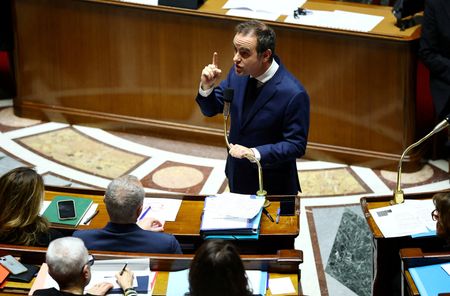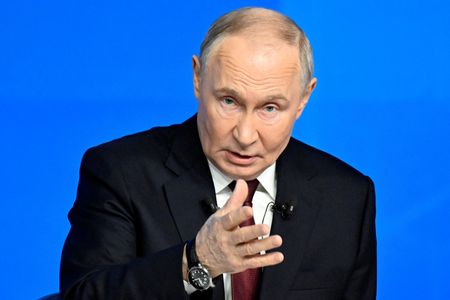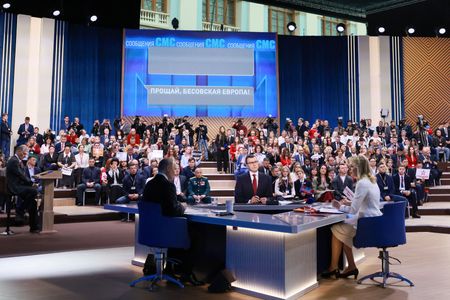By Christina Amann
HANOVER, Germany (Reuters) – Germany’s IG Metall union has accused Volkswagen of delaying critical decisions toward an agreement over pay and job security, adding that both sides disagreed in key areas and that talks could still collapse.
Meanwhile, Europe’s largest carmaker described the discussions as complex and declined to comment on the union’s criticism.
The assessment by the opposing sides came after some 60 hours of talks aimed at avoiding strikes in negotiations that include jobs and the future of the carmaker’s German plants.
Talks between Volkswagen and labour leaders about the various cost-cutting measures at Volkswagen will continue into Friday, both parties said.
“Negotiations have not been aborted, but we now expect the company to provide clarity as quickly as possible,” IG Metall said in a statement.
Talks have been going on late into the night since Monday in the hope of reaching a deal before Christmas and preventing potentially damaging large-scale industrial action, which Germany’s most powerful union IG Metall has warned could begin early next year.
Around 100,000 workers have already staged two separate strikes in the past month, the largest in Volkswagen’s history, protesting against management plans to cut wages, reduce capacity and potentially shut German plants for the first time.
There has been significant progress on the issue of wages, but it is not clear whether there would be an agreement before Christmas, another source said, adding that the future of VW’s Osnabrueck and Dresden plants looks uncertain.
IG Metall said that while some progress had been made in the discussions, which initially started in September, they remained at loggerheads in other areas.
“Accordingly, a longer interruption or termination of the fifth round of negotiations is always among the possible scenarios for an outcome,” a spokesperson for the union said earlier.
GERMAN UPHEAVAL
The crisis at the German automaker has hit at a time of uncertainty and political upheaval in Europe’s largest economy, as well as wider turmoil among the region’s automakers.
How to fix Germany’s sluggish growth has taken centre stage as a campaign issue ahead of a snap election in February.
VW’s structure is unique, with management having to get approval from a two-thirds majority in the 20-strong supervisory board for any decision to build or move a production plant.
That means 10 members representing German labour unions can veto any far-reaching plans that affect factories.
Any agreement with the union would require approvals by Volkswagen committees which further complicates and delays a possible deal, one of the people said.
Workers strongly oppose plant closures, but Volkswagen has said that the move may be necessary to find around 4 billion euros ($4.2 billion) in required cost cuts and respond to what it expects is structurally weaker demand in Europe.
Scenarios under discussion include capacity cuts rather than full plant shutdowns, the sources said, adding that one possibility could be shifting production of the Golf model to Mexico from VW’s main plant in Wolfsburg.
Volkswagen is also grappling with nimble and cheaper Chinese competitors as well as a slower-than-expected adoption of electric vehicles.
Citing people familiar with the matter, Bloomberg reported earlier that Volkswagen and unions were nearing an agreement to restructure the VW brand without closing factories in Germany.
Management is willing to keep plants running and restore job security agreements until 2030 in exchange for workers foregoing bonus payments, the report said.
($1 = 0.9621 euros)
(Reporting by Christina Amann; Writing by Maria Martinez; Additional writing by Tom Sims; Editing by Christoph Steitz, Sherry Jacob-Phillips, Mark Potter, Alexander Smith and Mark Porter)


